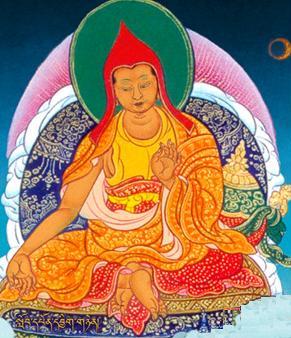Vaibhashika
Jump to navigation
Jump to search

Vaibhashika (Skt. Vaibhāṣika; Tib. བྱེ་བྲག་སྨྲ་བ་, chedrak mawa, Wyl. bye brag smra ba) — a shravakayana school of early Buddhism based in Kashmir, which was a subgroup of the larger Sarvastivadin school. This school is particularly well known for its comprehensive Abhidharma tradition.
The Vaibhashikas or ‘proponents of differences’ are so-called because they base their tenets on the text called Mahavibhasha, and/or because they posit the past, present and future as distinct and substantially existent temporal categories.
The Vaibhashika View of the Two Truths
Khenpo Ngakchung says:
- The Abhidharmakosha says:
- Things which, when destroyed or mentally dissected,
- Can no longer be identified by the mind,
- Such as pots or water, are relative;
- All else besides is ultimately existent.
- Treasury of Abhidharma, VI, 4
- Things which, when destroyed or mentally dissected,
- As this says, any coarse thing which can be smashed to pieces with a hammer or dissected into parts by the mind, so that the mind which apprehended that coarse appearance no longer identifies it as such, belongs to the relative truth. Then concerning the absolute, any coarse material thing or state of consciousness can be broken down into its ultimate constituents, which are individual particles or moments. Therefore the partless particles, which are the ultimate constituents of coarser things, and the indivisible moments of consciousness, which are the ultimate constituents of mental phenomena, are said to be absolute truth.
Other Tenets
- They categorize phenomena according to the five basic categories of knowable phenomena.
- They reject the idea that consciousness knows itself. The consciousnesses perceive their objects by means of their respective sense faculties directly without any images (or representations or mental features or aspects) (Tib. རྣམ་པ་, Wyl. rnam pa).
- Characteristics such as arising, dwelling and ceasing are believed to exist in a way that is distinct from the entities they characterize.
- They say that 'inexhaustible substance' is the basis for karma.
Alternative Translations
- Particularists
- Proponents of Difference
Further Reading
- Philippe Cornu, Manuel de bouddhisme — Philosophie, pratique et histoire. Tome I, Bouddhisme ancien et Theravāda (Editions Rangdröl, 2019), pages 182-194.